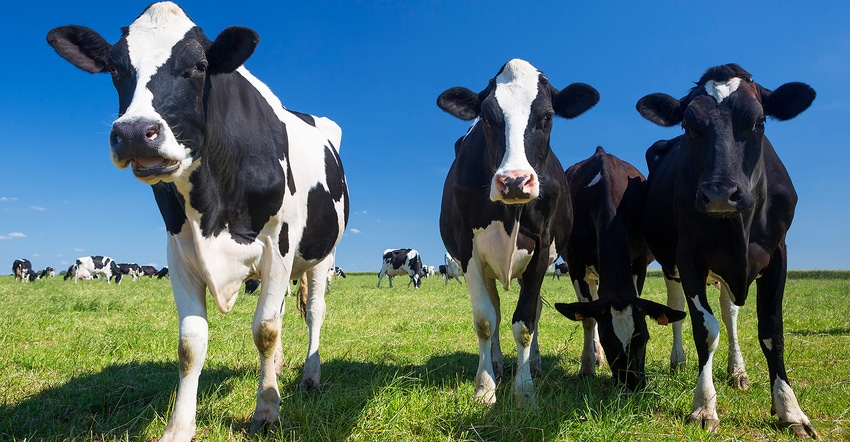June 7, 2018

My 22-year-old son says he wants to farm. He thinks now would be a great time to buy 80 cows, build a freestall barn and double our herd size. Cow prices are low, and he has saved $30,000 from working full time at a neighboring large dairy farm since graduating from high school. He wants to get a loan, build the barn by fall and buy the cows next October when the freestall barn is done. He is very ambitious. We will have to milk in the 65 tiestall barn and switch. We will also need to hire someone to help. My wife and I own 250 tillable acres, 80 Holstein cows, 80 heifers and a respectable line of machinery. We owe $200,000 on our farm mortgage. Should we farm on shares for a few years or form a limited liability company? I am 57 years old and too young to retire. Please advise.
Doug Hodorff: Wow, you have a lot going on at your farming enterprise. Your big challenge is how to take all those ambitious thoughts and work them into a sustainable business plan. I will share a couple of my thoughts. First, enthusiasm is great. But the question is when enthusiasm runs low, who will have enough fortitude to sustain the business? You have answered this question from your years in the farming business. You have to ask some very difficult questions. Are your long-term goals fulfilled if you enter into a business agreement? How can you protect your assets? How much equity can your son bring to the table?
There are many questions and concerns to think through. I would suggest you work with a business consultant for more guidance before you enter into an agreement. Most business agreements work well — it’s the business partners that create difficult situations. Plans very rarely work out as first thought. The big question is, as time goes by, how well will your partner adjust to fulfill everyone’s goals?
Sam Miller: Your son has worked off the farm, saved some money, developed a skill set and can provide an eventual generational transfer for the business — these are all great attributes for a successful expansion and transition. However, the place to start is the hard work of putting together a business plan. You have some components with the idea to build a freestall barn and double the herd size, but what about feed storage, manure management, herd replacements, sourcing feed for a doubling of the herd, plus the financial considerations of the expansion? Contact a qualified Dairy Business Consultant or Extension dairy specialist to work on the business plan.
The plan should include: a goal-setting exercise for each generation; detailed source and use of the project; several years of forecasts, including the ramp-up year and subsequent years to a steady state with young stock replacements; current and pro-forma balance sheets; and a marketing plan. Through this discussion, you may want to consider robotic milking systems as a trade-off to hiring additional labor.
Once you figure out the viability of the expansion, then discuss the appropriate business structure — whether it’s an LLC, farming on shares or another entity type. You have many attributes of a successful business expansion and transition. Completing this homework will increase your chance of success. Good luck with your discussions.
Katie Wantoch: Your son sounds very excited to work with you and your wife on your farm operation. It’s great to see that he has gone to work with another farm and obtained additional capital that is needed to start any new business. I can understand why you may be apprehensive to invest and expand your farm during this long down cycle in the agriculture industry. I would hate to hamper his eagerness for farming.
Maybe you and your son could plan to expand your herd in multiple steps. If your son decided to purchase more cows, would you have the option of switching cows to milk in the tiestall barn and not build a freestall barn? This would allow your son to start investing in the business and allow you both to see if this type of arrangement would work. However long this step would take depends upon each of you and your comfort level with moving on to the next step, such as building a freestall barn. While it may be a hard sell to your son, taking it slow may help him in the long run to succeed in farming.
Agrivision panel: Doug Hodorff, Fond du Lac County, Wis., dairy farmer; Sam Miller, managing director, group head of agricultural banking, BMO Harris Bank; and Katie Wantoch, Dunn County Extension agriculture agent specializing in economic development. If you have questions you would like the panel to answer, send them to: Wisconsin Agriculturist, P.O. Box 236, Brandon, WI 53919; or email [email protected].
You May Also Like




